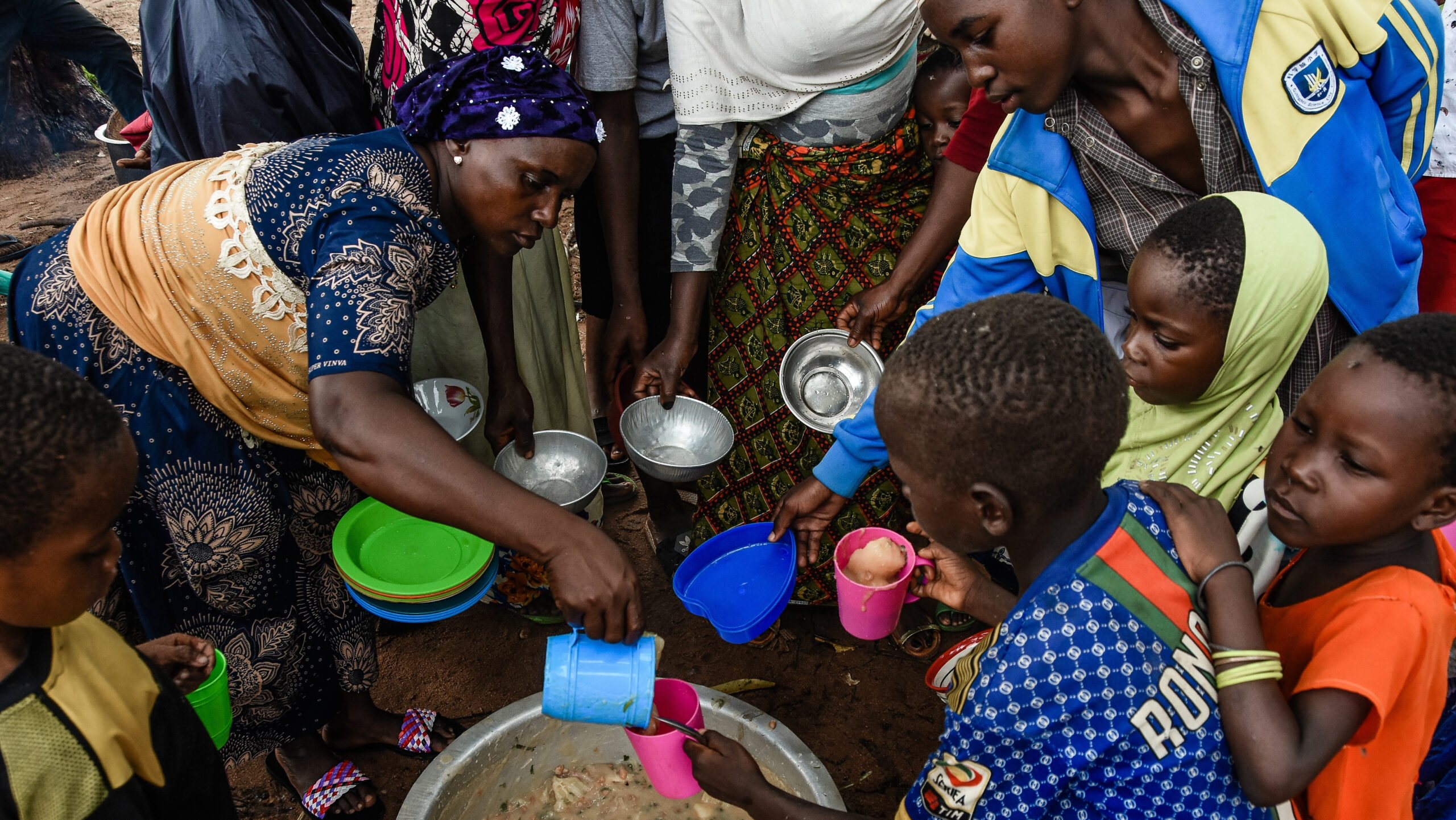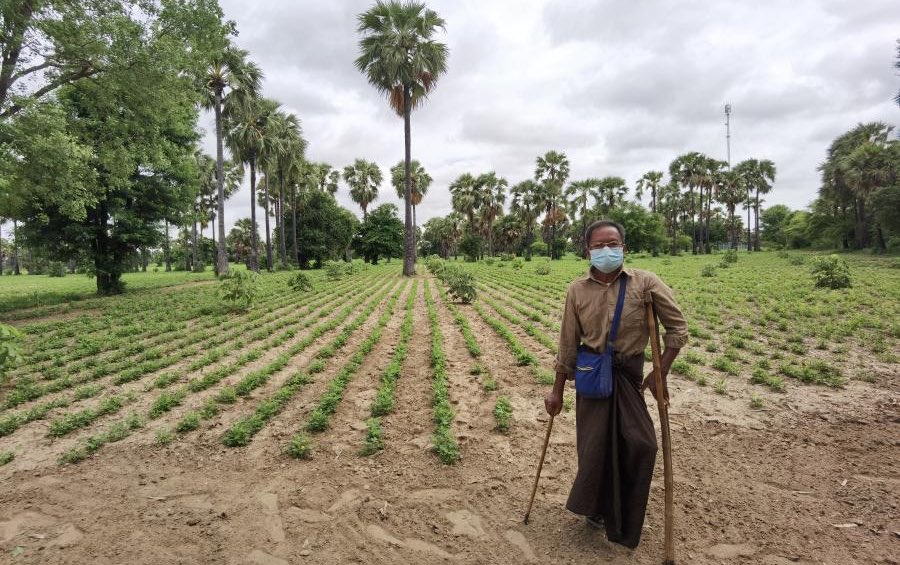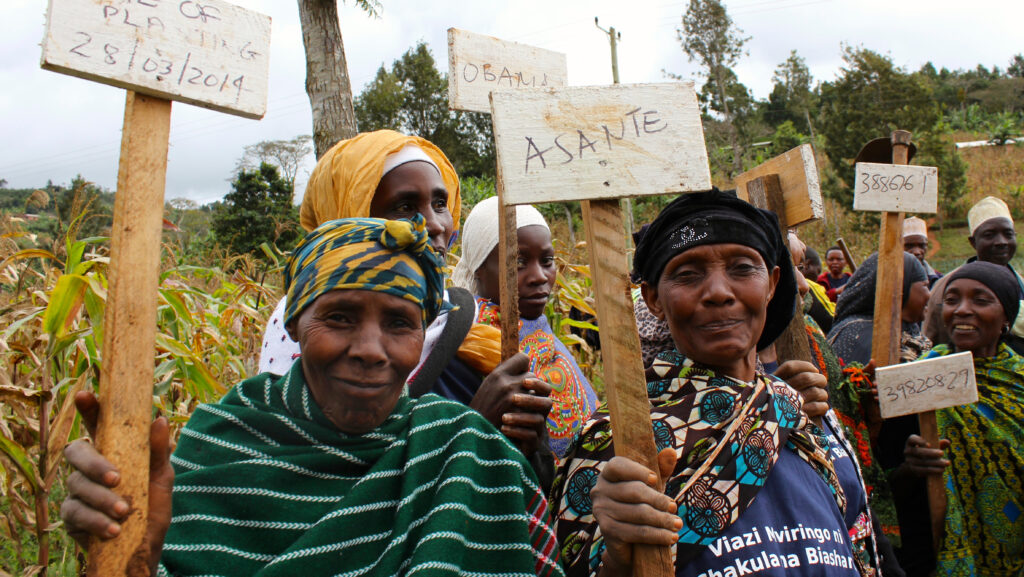What’s New
Special Blog Series

Making a Difference Blog Series
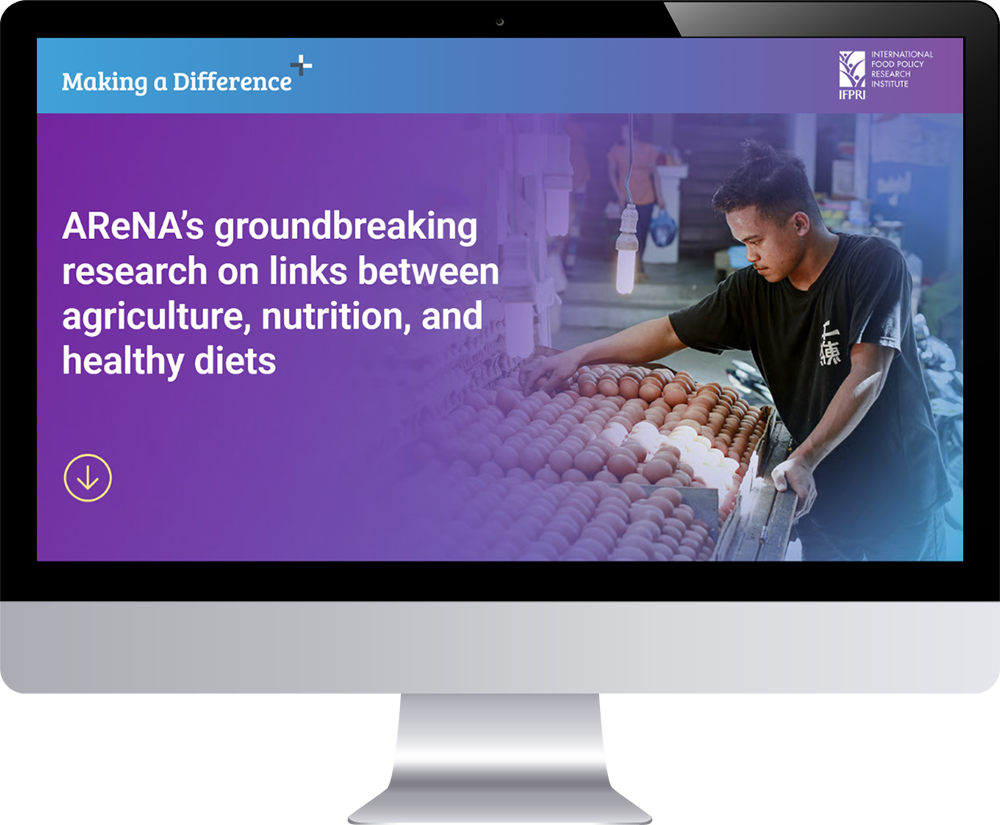
In 2014, IFPRI and the Gates Foundation launched the AReNA project to bridge agriculture and nutrition research, addressing data gaps and advancing understanding of how agriculture can better improve diets and nutrition worldwide.
The AReNA project created a one-of-a-kind dataset that links nutrition-related indicators to agricultural and environmental indicators. The dataset has been used for countless studies on the determinants of child stunting, wasting, and feeding practices.
AReNA was the first project to use the World Bank’s International Comparison Program (ICP) data on retail food prices—covering 175 countries and 800 food items—to study the affordability of healthy and unhealthy diets. It significantly influenced the adoption of healthy diet metrics in FAO-led State of Food Security and Nutrition reports and led to the widely-cited finding—used by the FAO, World Bank, and others—that 3 billion people cannot afford a healthy diet.
Our Reach
IFPRI shares knowledge with a global audience through high-quality research publications, insightful blog content, media commentary, and social media engagement. Our work informs policies, fosters discussions, and contributes to solutions that improve food security, nutrition, and livelihoods worldwide.
501k+
Blog views
480k+
Social Media followers
65k+
Publications
40+
Events in 2024
Explore IFPRI’s Interactive Content
-
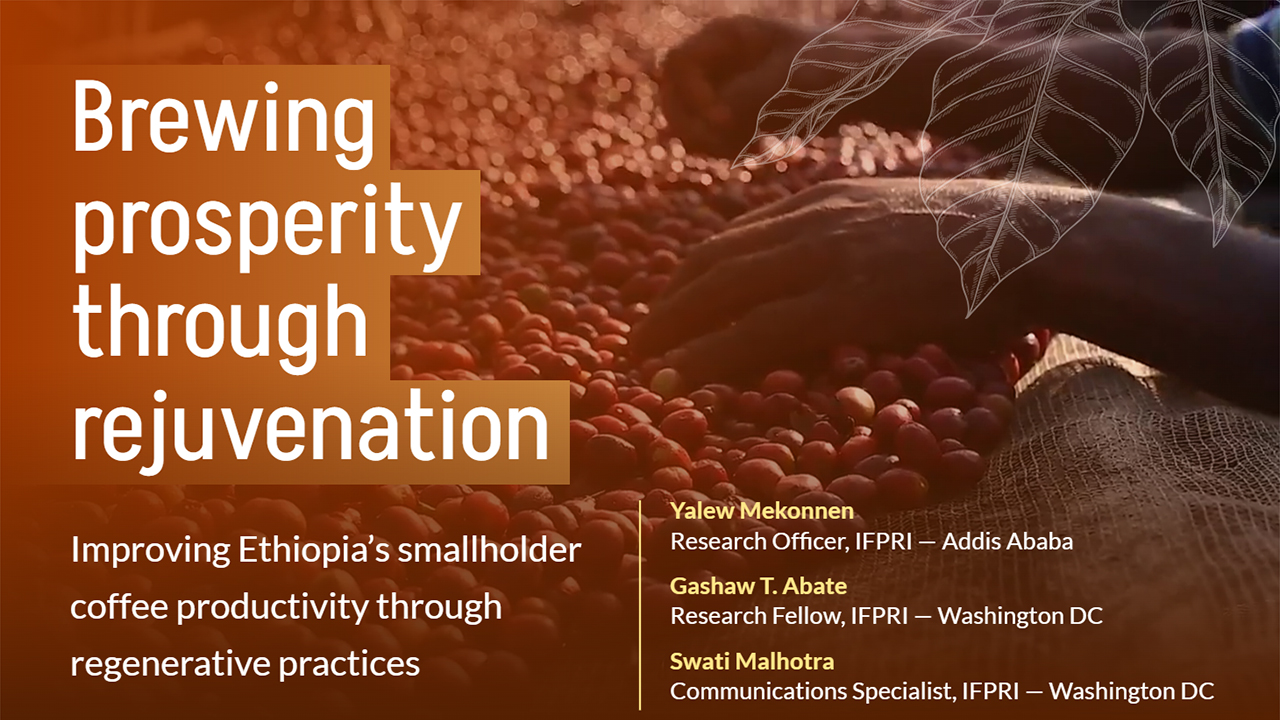
Brewing Prosperity through rejuvenation: Improving Ethiopia’s smallholder coffee productivity through regenerative practices
-
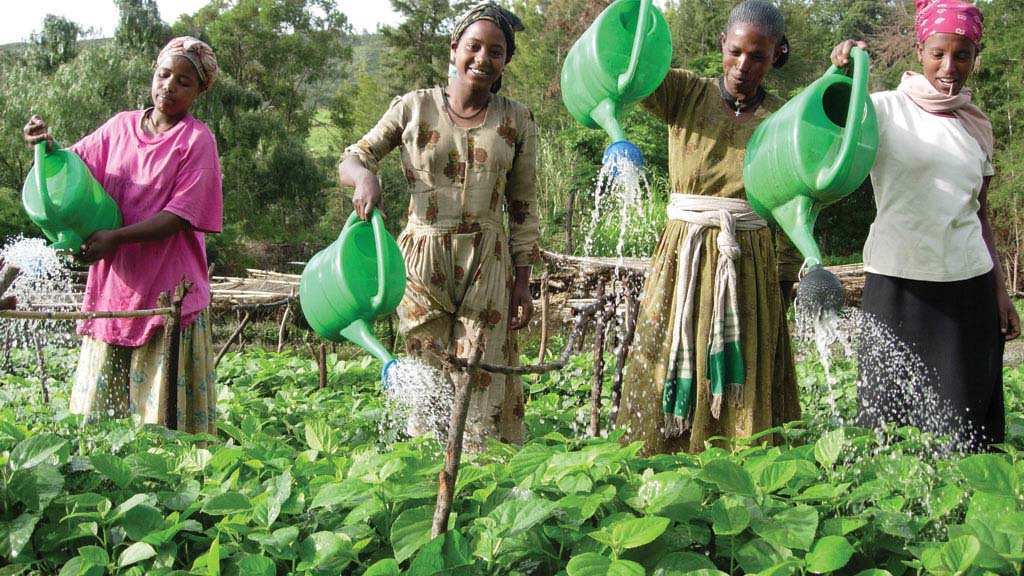
Learning Support for a Sub-Saharan Africa Multi-Country Climate Resilience Programme for Food Security
A new, innovative approach to fostering climate resilience in the region
-
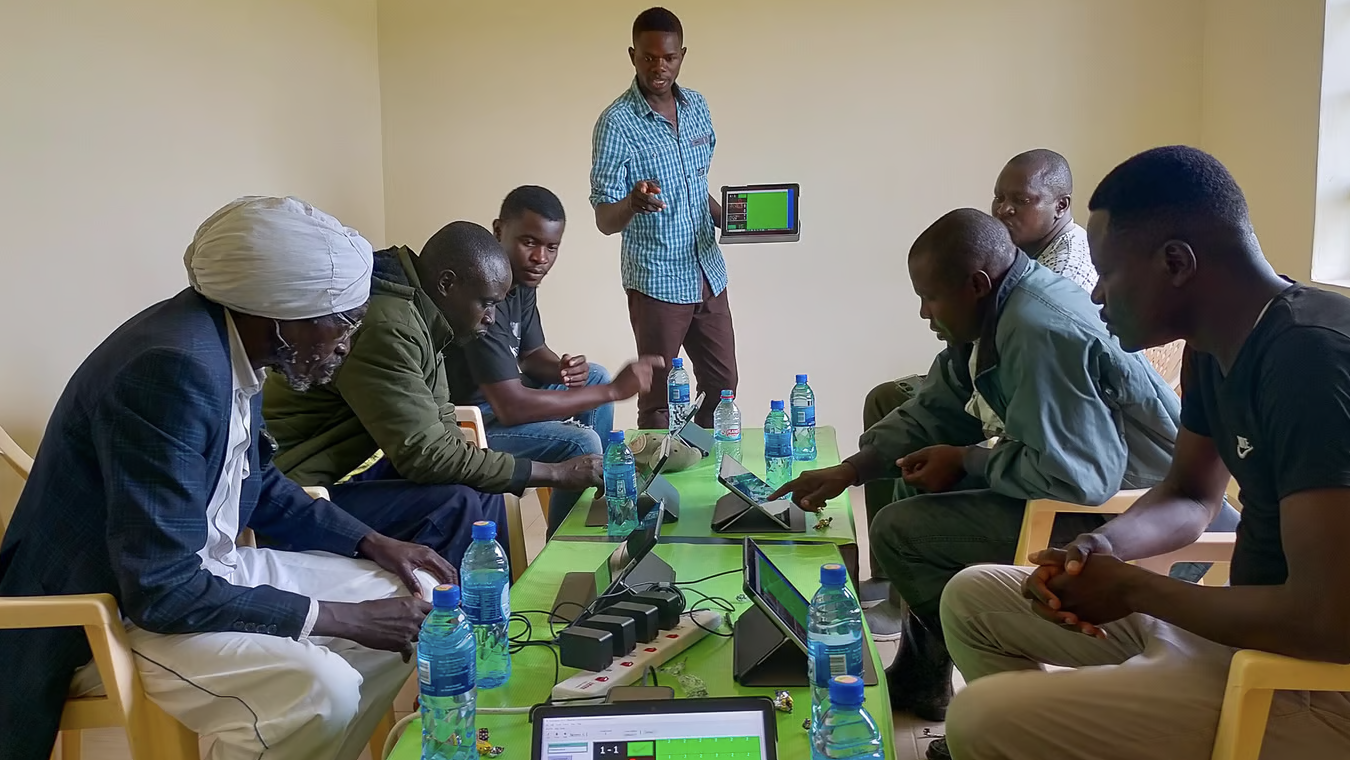
Experiential Learning Using Games in Kenya
In this six-person game, players use electronic tablets that are linked to a host tablet through a local network. Players share access to arable land where they can farm, graze animals, and develop their own resources over several agricultural seasons.





